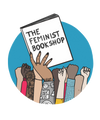Book Review: Disoriental

by Salomée Lou, December 2022
In recent months our hearts have gone out to the women leading protests across Iran in response to the shocking death of Mahsa Amini. The slogan 'Woman, Life, Freedom' has been chanted around the world as protests spread in support of these courageous women.
With this in mind, we chose Disoriental as our November Book Club. Reading a novel written by an Iranian woman which speaks to some of the history and complexities of the current situation in Iran seemed topical and urgent.
Disoriental is a mix between Oriental and Disoriented (of feeling lost, uprooted) and together, they evoke the separation with one’s culture to fit it into a new one.
“Because to really integrate into a culture, I can tell you that you have to disintegrate first, at least partially, from your own. You have to separate, detach, disassociate.”
“Soon, my first name won’t be pronounced in the same way anymore; the final â will become a in Western mouths, falling silent forever. Soon I will be disoriental.”
Meet Kimiâ. Kimiâ tells you her story like she is a friend of yours, using the first and the second person pronouns, whilst she's in the waiting room of a fertility clinic, about to (hopefully) become the mother she has been longing to be her whole life. Whilst she is waiting to be artificially inseminated, she has flashbacks from her traumatic journey from Iran to France at age ten. Through these flashbacks, she also receives meaningful lessons from her ancestors, dissident to the Shah’s regime in the sixties and the seventies.
Disoriental could be seen as a family saga that weaves through the historical context that spans over a hundred years. It could also be an auto-fiction because of the closeness with Négar Djavadi’s own story, as the daughter of intellectuals herself and how she arrived in France at eleven, after crossing the mountains of Kurdistan on horseback with her mother and sister. It could also be a lyrical novel, through the poetry and the imagery every description evokes. Last but not least, it could also be a script for the cinema, thanks to the immaculate structure, the back and forth, the details.
Ultimately, Disoriental is all of those genres and more.
Identity and transmission are two (of many) central themes in Négar Djavadi’s book: The parallel between Kimiâ’s birth and her great-grandmother’s death summons the projections that one relative has on you and how much it contributes to who you actually are and your identity as a child, as a person, but even before you were born in your mother’s belly.
“[...] to be honest, nothing is more like exile than birth.”
These immersive fragments are a way to distract her from the waiting in a pivotal moment in her life but also a way to pay tribute to her heritage, to show us that the past is only a continuity of the present and how her family and memories made the person she is today.
“Talking about the present means I have to go deep into the past […] I have to let myself be guided by the flow of images and free associations, the natural fits and starts, the hollows and bumps carved into my memories by time.”
The footnotes are enlightening and show us that the personal story of Kimiâ belongs to the global history of Iran - “To make things easier for you and save you the trouble of looking it up on Wikipedia.” It puts everything back into context and demonstrates, once again, that the personal is political. It is also a way to anchor the story to the global history in Iran and beyond.
The second part of the book, (SIDE B, the format of the book itself is a way to pay tribute to Kimiâ’s love for music) depicts Kimiâ’s coming of age in big European cities such as Amsterdam, Brussels, Berlin and Paris, where she realises her love for women.
Sexuality and gender identity are also essential themes to Disoriental - when Kimiâ pictures herself as a topless man on a balcony, smoking a cigarette, as the epitome of liberation and empowerment and when she first hears the word lesbian, coming out of her older sister’s mouth, used as a slur against Kimiâ, when she is just a young girl, playing around.
“I didn’t know what the word lesbian meant; yet, by some strange alchemy, the second it dropped onto me, as dark as a drop of black ink into a glass of water, I felt it.”
Reading Disoriental will remain one of the most beautiful experiences I have had as a reader. I will carry on recommending it to anyone walking through the bookshop’s door for its timeless and powerful message. I loved it so much that after reading the (brilliant) translation by Tina Kover, I reread in my first language, (and in its original version) - French.
In the time of the Women, Life, Freedom movement as thousands of women and people fight for their basic human rights, we need more than ever to decentralise Western narratives, listen to women’s stories and support and amplify their voices. For me, Disoriental was an eye-opening window into one woman’s experience and I very much look forward to reading more books by authors from Iran and the surrounding region.
Thank you so much for reading. Please do let us know what you think in the comments below or scroll down to see some of my related reading recommendations.










Leave a comment